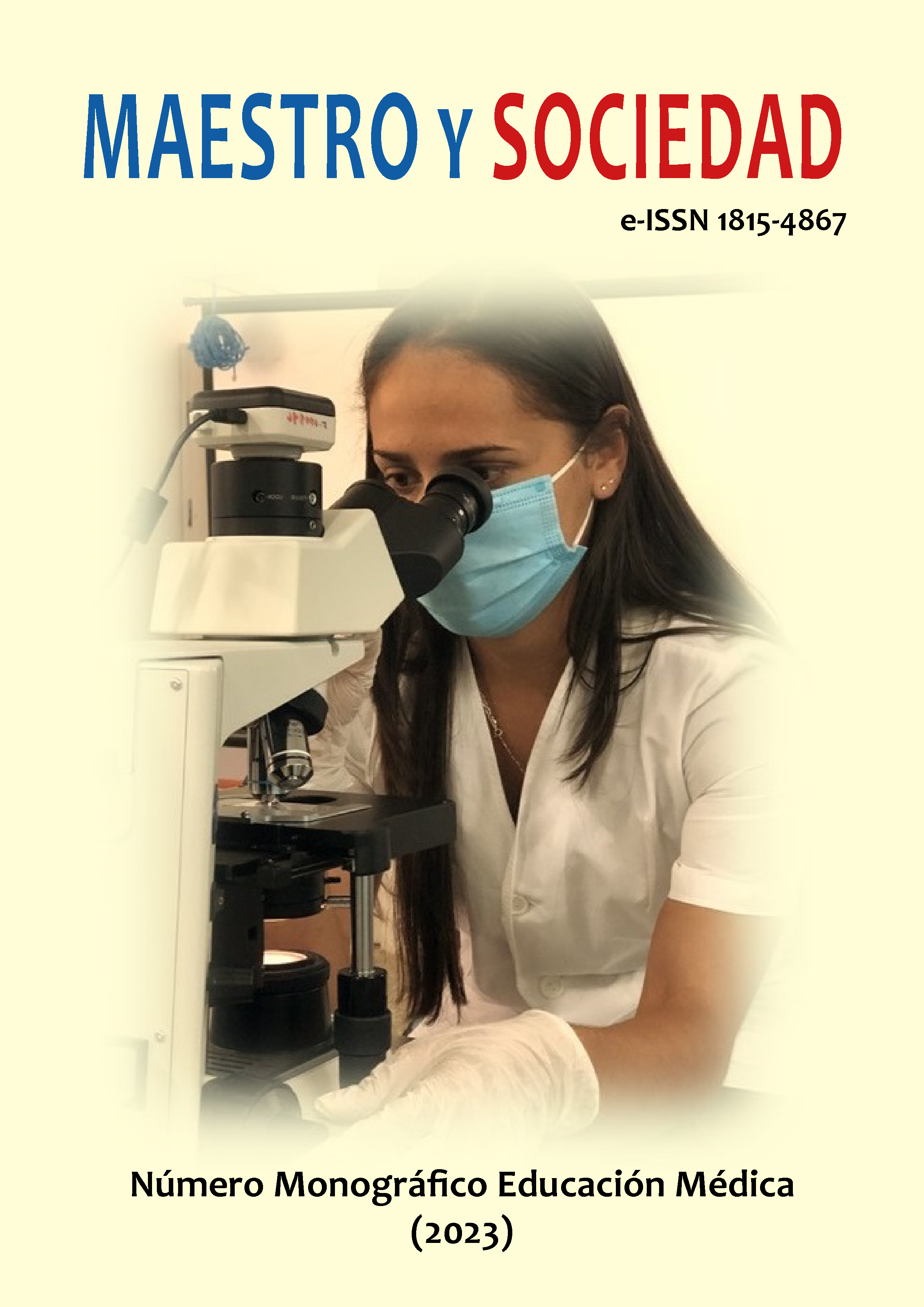Importance of the nursing role in the care of pediatric patients with acute lymphoblastic leukemia
Importance of the nursing role in the care of pediatric patients with acute lymphoblastic leukemia
Keywords:
Acute Lymphoblastic Leukemia, malignant neoplasia, pediatric patient, bone marrow, oncohematologicalAbstract
Introduction: Acute lymphoblastic leukemia is the most common malignant neoplasm in childhood. They are neoplastic
processes of the hematopoietic tissue of clonal origin, which are distinguished by infiltration into the bone marrow, blood
and other tissues by cancer cells of the hematopoietic tissue. Objective: to show the importance of the nursing role in
the care of pediatric patients with acute lymphoblastic leukemia. Materials and methods: a descriptive bibliographic
review was carried out, in which updated bibliography was used, where reference was made to the most important
articles, for which studies by different authors were consulted from sources such as Infomed, MEDISAN, virtual library,
google academic and others. Results: leukemia is the most common oncological disorder of childhood, characterized
by a bone marrow condition that causes excessive production of immature cells called blasts. The exact etiology of this
disease is not known, but like the rest of malignant diseases, it is multifactorial. To diagnose the disease, a bone marrow
aspirate is indicated to assess whether or not there is cellular blastosis. The treatment that the child will receive will be
aimed at eliminating leukemic cells for better bone marrow functioning. Discussion: The nursing care applied to these patients is aimed at the alterations that this condition can cause to the different systems of the body. Nursing care
focuses on protecting them from external agents, preserving their health and personality, and incorporating them into
society as active members. Conclusions: Nursing is an essential care element in the care of pediatric patients with acute
lymphoblastic leukemia. The nurse plays a fundamental role, offering not only care, but also attending to her needs and
the main alterations of the body to achieve quality of life in the world of children's oncology.
References
Cebolla Rojas, C. (2018). Leucemia linfoide aguda. Atención de enfermería en el paciente oncológico pediátrico.
http://uvadoc.uva.es/handle10324/3
Gonzales Gilart, G., Salmon Gainza, S. L., Querol Betancour, N., Jiménez Portuondo, N. (2018). Características
clinicoepidemiologicas de las leucemias en el niño. Medisan, 15(12).
Ortega Sánchez, M., Osnaya Ortega, M. L., Rosa Barrientos, J. V. (2018). Leucemia Linfoblástica Aguda. MedInt.
Mex.; 15(12).
Rendón Macías, M. E., Reyes Zepeda, N. C., Villasís Keever, M. A., Serrano Meneses, J., Escamilla Núñez, A.
(2012). Tendencia mundial de la supervivencia en pacientes pediátricos con leucemia linfoblástica aguda. Revisión de las
últimas cuatro décadas. Bol Med Hosp Infant Mex; 69(3), 153-163.
Santos Ramos, C. (2018). Revisión sistemática: cuidados de enfermería en leucemia linfoblástica aguda infantil.
Universidad Pontificia. https://comillas.edu
Downloads
Published
How to Cite
Issue
Section
License
Copyright (c) 2023 Anamelis Lora Borlot, Lorena Jaime Villalón, Raiza Mercedes Colás Rodriguez

This work is licensed under a Creative Commons Attribution-NonCommercial-NoDerivatives 4.0 International License.
This journal provides immediate open access to its content, based on the principle that offering the public free access to research helps a greater global exchange of knowledge. Each author is responsible for the content of each of their articles.



























 Universidad de Oriente
Universidad de Oriente 